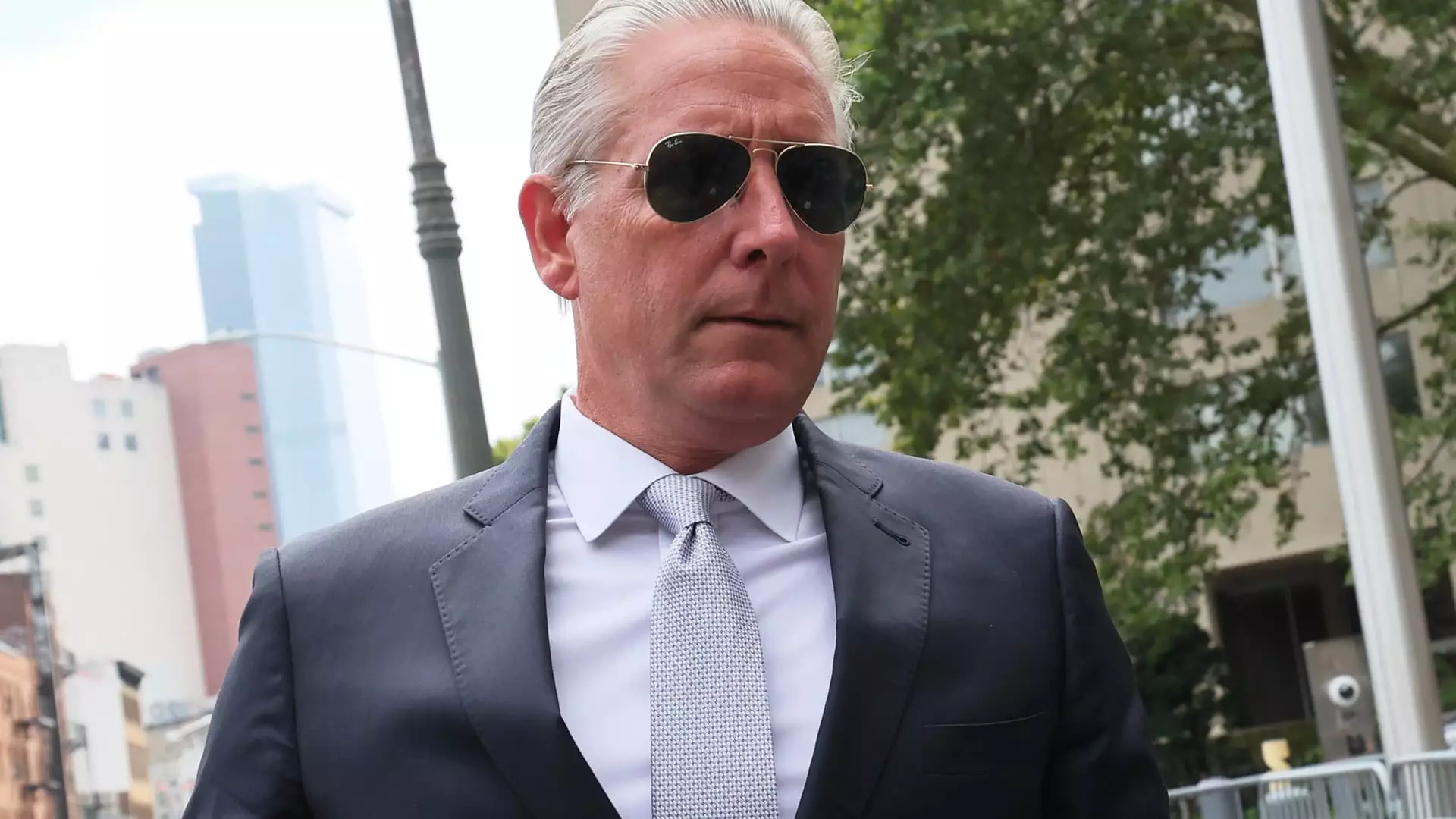In a stunning turn of events, a former high-ranking FBI counterintelligence official, Charles McGonigal, pleaded guilty to conspiring to violate sanctions on Russia. This shocking revelation highlights the extent to which corruption can infiltrate even the highest echelons of law enforcement. McGonigal, who served as the special agent in charge of the FBI’s counterintelligence division in New York, admitted to working for billionaire industrialist Oleg Deripaska, whom he once investigated.
Appearing before a federal judge in New York City, McGonigal expressed deep remorse for his actions. He confessed to accepting over $17,000 to assist Deripaska in collecting derogatory information about another Russian oligarch who posed as a business competitor. The fact that McGonigal was willing to collaborate with an individual who had been under U.S. sanctions since 2018 raises serious questions about his loyalty and commitment to upholding the rule of law.
Not only was McGonigal aiding Deripaska in gathering compromising information, but he was also attempting to help him get off the sanctions list. Assistant U.S. Attorney Rebecca Dell disclosed that McGonigal, along with his co-conspirators, was in discussion to receive a hefty fee of $650,000 to $3 million for uncovering hidden assets belonging to Deripaska’s business rival. This revelation raises concerns about whether other officials within the FBI were also involved in this illicit plan.
McGonigal pleaded guilty to a single count of conspiring to launder money and violate the International Emergency Economic Powers Act. If convicted, he could face up to five years in prison. Judge Jennifer H. Rearden has scheduled his sentencing for December 14. This case serves as a reminder that no one is above the law, and those who abuse their positions of power will be held accountable for their actions.
The story takes another twist as McGonigal is separately charged in federal court in Washington, D.C., with concealing at least $225,000 in cash that he allegedly received from a former Albanian intelligence official while working for the FBI. This additional charge further tarnishes McGonigal’s reputation and raises questions about the extent of his involvement in illicit activities.
During the court proceedings, McGonigal became visibly emotional as he described his crime. He confessed that Deripaska funneled the $17,500 payment through a bank in Cyprus and a corporation in New Jersey before finally reaching his bank account. Acknowledging the repercussions of his actions, McGonigal expressed deep regret and took full responsibility for betraying the United States, the FBI, and his loved ones.
Matthew G. Olsen, the assistant attorney general of the Justice Department’s National Security Division, released a statement reflecting on McGonigal’s betrayal. He emphasized that McGonigal, by his own admission, had betrayed his oath and concealed his illicit work on behalf of a sanctioned Russian oligarch. This case serves as a wake-up call for the Department of Justice, highlighting the urgent need to dismantle the illegal networks employed by Russian oligarchs to evade sanctions and undermine U.S. laws.
The guilty plea of Charles McGonigal sheds light on the pervasive nature of corruption and the potential for individuals at the highest levels of law enforcement to be swayed by personal gain. This case serves as a stark reminder that trust in public officials must always be tempered with vigilance and accountability. As the sentencing approaches, the American justice system has an opportunity to demonstrate that no one, regardless of their position, is immune to the consequences of their actions.


Leave a Reply